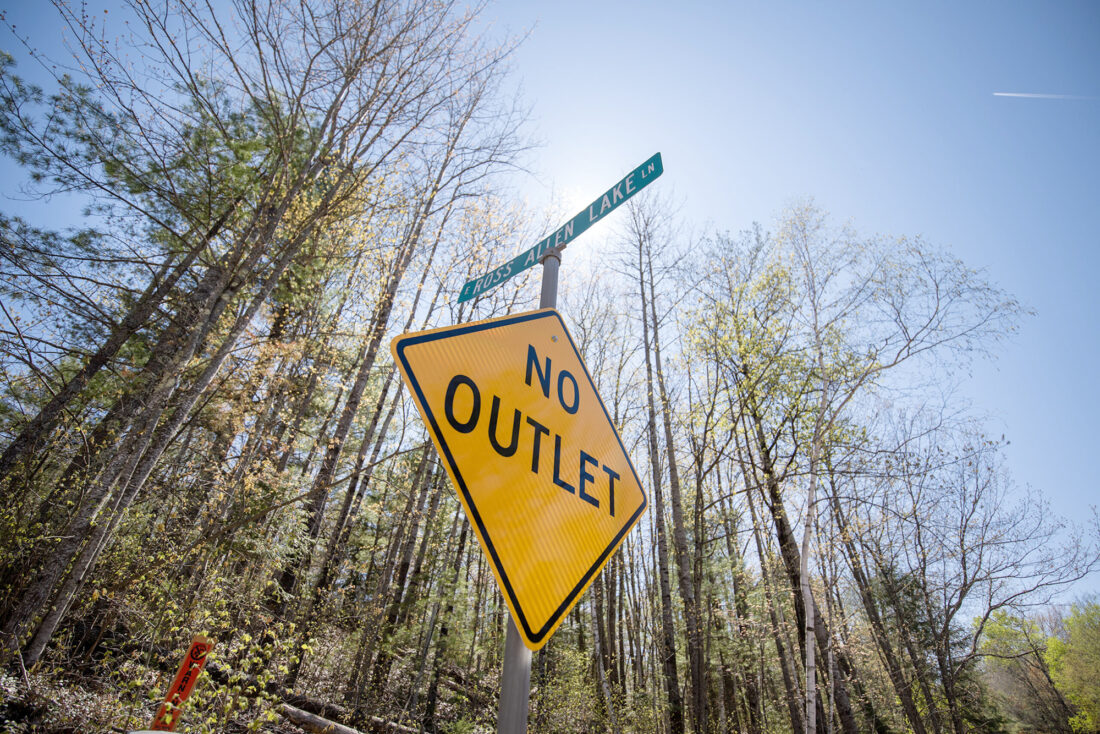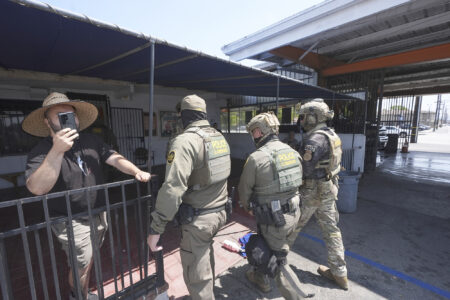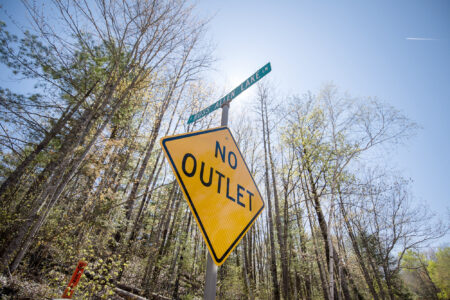Tiffany urges US DOJ to investigate tribe over road access payments

The street sign for East Ross Allen Lake Lane earlier this year in Lac du Flambeau, Wis. (Angela Major/Wisconsin Public Radio)
Republican U.S. Rep. Tom Tiffany says the U.S. Department of Justice should investigate the Lac du Flambeau Band of Lake Superior Chippewa for charging the Town of Lac du Flambeau hundreds of thousands of dollars to use roads crossing reservation land.
In a letter sent Tuesday to U.S. Attorney General Pam Bondi, Tiffany also asked the DOJ to get the tribe to repay the town more than $600,000.
Tiffany, from Minocqua, referenced a prolonged legal battle between the Lac du Flambeau band, town officials and nontribal homeowners dating back to late January 2023. That’s when the tribe barricaded four roads crossing reservation land after negotiations over easement payments stalled. As a result, dozens of residents were unable to access their homes for about two months.
After removing the barricades in March 2023, the tribe began charging the town increasing monthly payments for the roads to remain open as multiple lawsuits worked their way through the courts.
On Aug. 6, a federal judge ruled in the homeowners’ favor and barred the tribe and U.S. government from restricting access to the roads.
In his letter to Bondi, Tiffany called the monthly fees levied by the tribe an “extortion racket.”
“The town of Lac du Flambeau – a small community with a population of just over 3,000 people – saw its finances pushed to the absolute limit by the unlawful standoff created by the reckless and irresponsible actions of the tribal government,” Tiffany wrote. “It is only fair that as the instigators of this unnecessary dispute, the tribe be held accountable.”
A spokesperson for the Lac du Flambeau Band said tribal leaders were unable to comment on Tiffany’s letter, which is being reviewed by the tribe’s attorneys.
A spokesperson for Tiffany, who has been teasing a potential run for governor, said he is out of the office this week and unable to comment on his DOJ request.
A federal judge has ruled in favor of more than 50 homeowners and the town of Lac du Flambeau in a longstanding dispute with the Lac du Flambeau tribe about access to roads crossing tribal lands.
In an 47-page order filed Aug. 6, U.S. District Judge William M. Conley said the more than 50 homeowners and the town of Lac du Flambeau have a legal right to use and access four roads at the center of the ongoing feud. The roads include Annie Sunn Lane, Center Sugarbush Lane, East Ross Allen Lake Lane and Elsie Lake Lane.
In his order, Conley permanently barred the United States government and the Lac du Flambeau tribe from restricting access to the four roads. He found that the listing of the four roads on the National Tribal Transportation Inventory makes them public, as well as the town’s status as a public authority that maintained the roads for decades.
Conley rejected the federal government’s argument that the town was trespassing on tribal lands because it lacked valid, unexpired easements under the Indian Right of Way Act. He said the record doesn’t explain why most easements were limited to 50-year terms “since the ultimate intent in all was to grant public road status to the town.”
Conley declared that homeowners hold valid easements that run with the land between their homes and the roads, allowing them access. He also found that the town of Lac du Flambeau has a permanent easement over the north-south segment of Annie Sunn Lane.
He ordered that the four roads must remain open for public use as long as they are listed on the National Tribal Transportation Inventory. He also ruled that the Bureau of Indian Affairs acted unlawfully when it removed the four roads from the inventory in March of 2023, revoking the agency’s decision.
In a statement Aug. 7, the Lac du Flambeau tribe disagreed with the judge’s decision, saying it overlooked federal law that protects tribal lands and sovereignty.
“We are disappointed by the outcome and concerned about the precedent this decision may set for Tribal governments across the country,” Tribal President John Johnson Sr. said. “Nonetheless, we will carefully review the decision and consider all available options for the Tribe.”
The tribe said it would continue to defend its land.
———-
WPR’s Danielle Kaeding contributed to this story.





